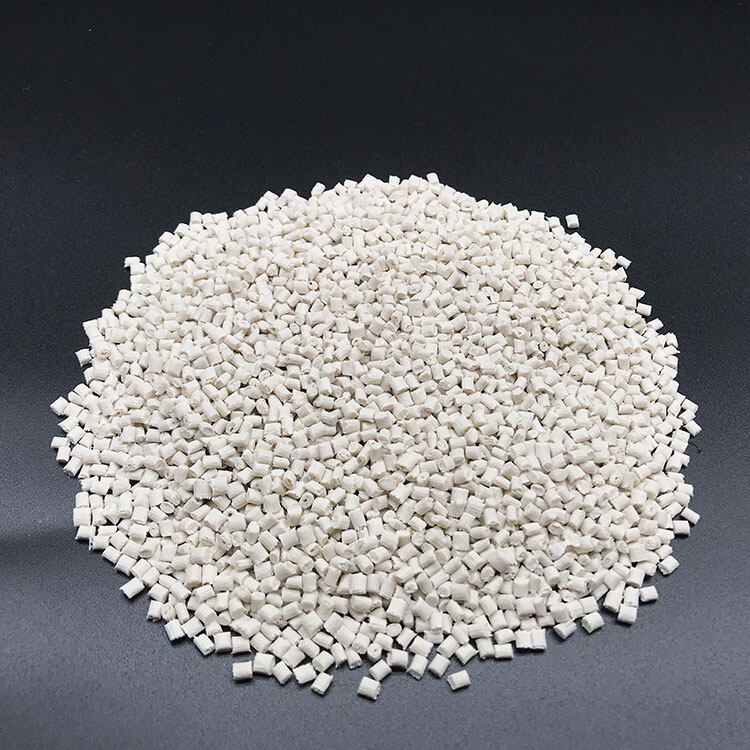Erreur de format d'e-mail
emailCannotEmpty
emailDoesExist
pwdLetterLimtTip
inconsistentPwd
pwdLetterLimtTip
inconsistentPwd

Offer Technical Support and Customized Solutions
The company is committed to creating new and improved plastic materials to meet the evolving demands of the market.

Finding the Best PPA Particles Supplier: A Comprehensive Guide for Businesses
In the world of advanced polymers and engineering materials, PPA particles (polyphthalamide) have emerged as a highly sought-after material, offering exceptional performance in demanding applications. As businesses increasingly look for reliable sources of these specialized particles, finding the right PPA particles supplier becomes crucial. This guide will walk you through everything you need to know about sourcing PPA particles, the benefits of working with top suppliers, and tips on making informed purchasing decisions.
What Are PPA Particles?
Before diving into how to choose the best supplier, it's important to understand what PPA particles are and why they are valuable in various industries. PPA (polyphthalamide) is a high-performance thermoplastic that belongs to the nylon family. It is known for its excellent thermal stability, resistance to chemicals, and high strength, making it ideal for automotive, electrical, and industrial applications.
PPA particles are used in the production of components that require high resistance to heat and mechanical stress. These particles can be molded into complex shapes, offering flexibility in design and application. Whether you’re in the automotive industry, looking to enhance the durability of parts, or in electronics, needing materials that withstand high temperatures, PPA particles can be a game-changer.
Why Choosing the Right PPA Particles Supplier Matters
Selecting a supplier is more than just finding a vendor who offers the best price. The quality of PPA particles can significantly impact the performance and longevity of the products you manufacture. Therefore, partnering with a reputable supplier ensures that you receive high-quality materials that meet your specific requirements.
A good supplier not only provides top-grade PPA particles but also offers technical support, consistent supply, and insights into the latest industry trends. This partnership can lead to innovation in product development and can help you stay ahead of the competition.
Key Factors to Consider When Choosing a PPA Particles Supplier
1. Quality of PPA Particles
The foremost consideration when selecting a supplier is the quality of the material. High-quality PPA particles should have consistent properties, such as uniform particle size, purity, and stability. Requesting material data sheets and conducting sample tests can help ensure that the supplier meets your quality standards.
2. Supplier’s Industry Reputation
Another important factor is the reputation of the PPA particles supplier in the industry. A supplier with a strong track record is likely to provide reliable service and quality products. Research customer reviews, ask for references, and evaluate how long the supplier has been in the market. A well-established supplier often has a proven process and quality control systems in place.
3. Technical Support and Expertise
The ability of the supplier to provide technical support is crucial, especially if you’re integrating PPA particles into new or complex applications. A supplier with a team of experts can offer guidance on material selection, processing techniques, and troubleshooting, helping you optimize the use of PPA particles in your products.
4. Supply Chain Reliability
A supplier must be able to deliver the material consistently and on time. Supply chain reliability is critical to avoid production delays and maintain the quality of your products. Consider the supplier’s manufacturing capacity, their logistics network, and their ability to scale up production if needed.
5. Cost Competitiveness
While quality and reliability are paramount, cost is also a significant factor. However, it’s important not to compromise on quality for the sake of lower prices. Look for a supplier that offers competitive pricing without cutting corners on material quality.
6. Sustainability Practices
With increasing emphasis on sustainability, partnering with a supplier that adheres to environmental standards can enhance your company’s green credentials. Check if the supplier follows sustainable practices, such as using eco-friendly production methods or offering recyclable materials.
Top PPA Particles Suppliers in the Market
There are several leading PPA particles suppliers globally, each offering a range of products tailored to different industries. Here’s a look at some of the top suppliers and what sets them apart:
1. BASF
BASF is one of the largest chemical producers in the world and a leading supplier of high-performance engineering plastics, including PPA particles. Their Ultramid® Advanced N series offers PPA materials that are ideal for automotive and electronics applications, known for their thermal resistance and mechanical strength. BASF’s global distribution network and extensive technical support make them a reliable partner for businesses seeking consistent and high-quality PPA particles.
2. Solvay
Solvay is renowned for its innovative solutions in advanced materials, including PPA particles under the Amodel® PPA brand. Solvay’s PPA materials are highly regarded for their excellent dimensional stability and resistance to chemicals and high temperatures, making them suitable for a wide range of industrial applications. Solvay’s strong R&D capabilities and focus on customization enable them to offer tailored solutions that drive product advancements.
3. DuPont
DuPont is a global leader in materials science, offering a comprehensive portfolio of engineering polymers, including Zytel® HTN PPA particles. DuPont’s PPA products are designed for high-performance applications in the automotive and electronics sectors, providing superior durability and resistance to extreme conditions. With a commitment to sustainability, DuPont also focuses on eco-friendly production processes, making them an attractive partner for companies looking to enhance their green initiatives.
The Role of PPA Particles Dealers
While this guide focuses primarily on suppliers, it’s worth mentioning the role of PPA particles dealers in the supply chain. Dealers often work with multiple suppliers, offering a variety of PPA particles from different sources. They can provide flexibility in terms of material selection and may offer more competitive pricing by sourcing from various manufacturers. However, it’s essential to vet dealers carefully to ensure they maintain the quality and reliability standards you require.
How to Ensure Long-Term Success with Your PPA Particles Supplier
Once you’ve selected a PPA particles supplier, building a strong, long-term relationship is key to your ongoing success. Here are some tips to ensure a fruitful partnership:
1. Communicate Clearly and Regularly
Maintain open lines of communication with your supplier. Regularly discuss your material needs, any changes in production schedules, and potential challenges. This will help the supplier better understand your requirements and provide the necessary support.
2. Evaluate Performance Periodically
Conduct periodic evaluations of your supplier’s performance, including the quality of the PPA particles, delivery times, and customer service. This ensures that the supplier continues to meet your standards and allows you to address any issues promptly.
3. Stay Updated on Industry Trends
The world of materials science is constantly evolving, with new innovations and trends emerging regularly. Stay informed about the latest developments in PPA particles and discuss these with your supplier. A proactive approach can lead to new opportunities for product development and improved competitiveness.
4. Collaborate on Product Development
Engage your PPA particles supplier in product development projects. Their expertise can provide valuable insights and help you optimize material usage. This collaboration can lead to the development of new products or the enhancement of existing ones, giving you a competitive edge in the market.
Conclusion: Making the Right Choice for Your Business
Choosing the right PPA particles supplier is a critical decision that can have a significant impact on your business’s success. By focusing on quality, reliability, technical support, and cost competitiveness, you can find a supplier that not only meets your current needs but also supports your long-term goals. Remember to consider the reputation and sustainability practices of potential suppliers, and don’t overlook the value of building a strong, collaborative relationship.

